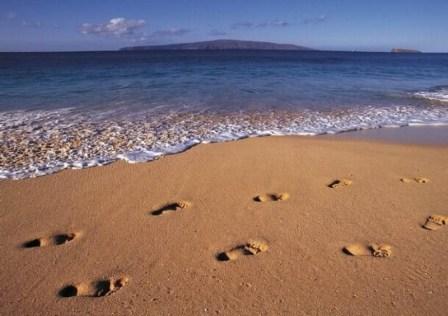10 Ways to Conserve Water
and Reduce Your Water Footprint
Nancy Hearn, CNC
Note: As an Amazon Associate I earn from qualifying purchases.
Implementing 10 simple ways to conserve water in our households can significantly reduce our water footprints on earth.
According to WholeLiving.com, the average American household uses about 125 gallons of water indoors every day.
Water conservation experts predict that by the year 2025, water shortage will impact nearly two-thirds of the world's population, including those of us living in the United States.
Population growth, climate change, and other factors are causing our rivers to run dry and water levels in our lakes to drop.
As individuals, we can make a difference by taking small steps toward reducing water usage. The collective effort can make a significant difference in the growing water shortage.
The most important water super savers that we can implement in our homes are listed below.
10 Ways to Conserve Water at Home
The list begins with the food we eat because it accounts for at least 50 percent of our water footprint, according to Kai Olson-Sawyer, a researcher at Grace Communications Foundation.
She writes, “Eating less meat is the key to reducing it, because of all the water needed to raise the livestock.”
After food, the water used for lawns and gardens is next on the list because it comprises about 40 percent of most household use.
- Foods. The five foods that use the most water to produce include the following, in the order of highest usage: (1) butter, (2) beef, (3) processed cheese, (4) olives, and (5) figs. Eating less of butter, beef and cheese will make a huge difference (not to mention improvements in health).
- Gardens. Use a rain barrel to collect rain water from your roof gutter. Even a small amount of rain will readily fill most barrels and provide the best source of water for your garden. Never water your garden or lawn midday because too much water will evaporate.
- Lawns. Trying to maintain a grass lawn in a desert region is obviously going to use an excessive amount of water. Whenever possible, use plants and ground covers that are indigenous to your region.
- Bottled water. According to the National Resource Defense Council, three liters of water is used to make just one liter of bottled water. The excessive amount of plastic that ends up in landfills also impacts water pollution and ultimately water scarcity.
- Drinking water. Use a drinking water filter system that filters your tap or well water rather than purchasing bottled water or drinking unhealthy tap water. Avoid reverse osmosis systems and distillers, which waste water. Reverse osmosis filters waste three gallons of water for every gallon they filter.
- Dishwasher. Scrape food off your plate rather than using the pre-rinse cycle of your dishwasher. Only run the dishwasher when it is completely full.
- Washing machine. Use the least amount of water needed for the size of your load. An Energy Star machine can reduce up to 18 gallons a load. Buy concentrated laundry detergents, which require less water and take less energy to produce.
- Car wash. Washing your car with your hose in the driveway can use 60 gallons or more in just a few minutes. Hose down the car then turn off the water while you soap it down with a bucket of soapy water. Or find a water saver car wash near you at the reference below.
- Toilets. Make sure your toilet is not leaking. A constant running toilet or slow leak can waste up to 200 gallons a day.
- Showers. Using a water-saving showerhead and taking shorter showers can save a few thousand gallons of water per year. Try to limit time in the shower to 5 minutes or less (which is more than enough time to get the job done).
References
Wholeliving.com; 10 Easy Ways You Can Conserve More Water; 2016.
Further reading . . .
Bottled Water Versus Tap Water
Return from 10 Ways to Conserve Water to World Water Scarcity
If you would like to reproduce or republish this article or any other article on this site, feel free to do so but please include a reference or link to the article at WaterBenefitsHealth.com.
Sign Up for Our Monthly
Newsletter
Visitor Comments
"This was the best and most straight forward info on the net yet. I asked a question and got an answer that made sense. Thank you so much!" - Linderlinder
FINALLY!!! I have been wondering about this for years with no 'solid' answer. This is exactly what I've been wanting to know! Thank you for this share..." by Andy
"Thank you for the information, Nancy. I appreciate it. Your article and findings are very helpful, referring to dehydration." - Carolyn
"Lemon water is one drink both my wife and I can't drink. It upsets our stomachs. We are in our sixties and in very good health—well, better health now that we drink about 2 liters plus of water each day. It has made so much difference to our digestive systems and recovery every day. Thank you for your website and effort." - Rod



